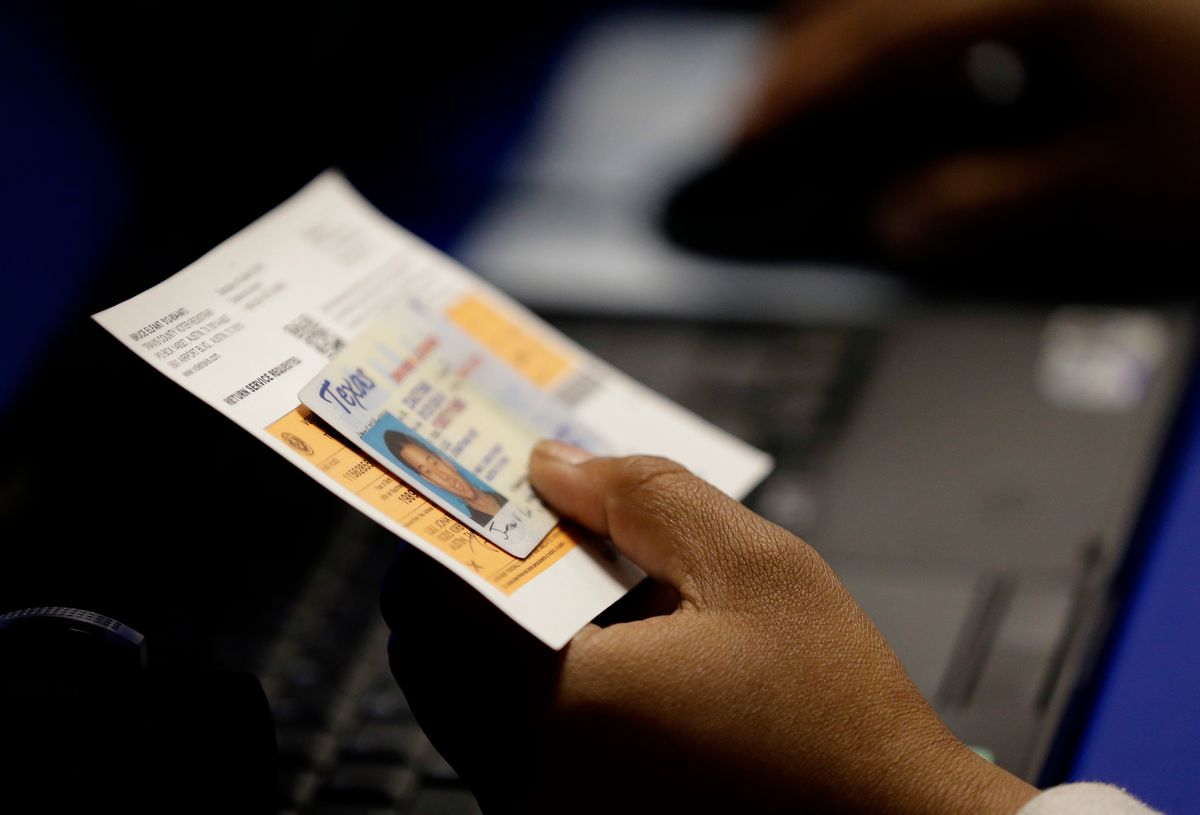 Hours after President Donald Trump was inaugurated, the Department of Justice filed to postpone a hearing on the Texas Voter ID law. The request was granted. The DOJ had previously argued that the law intentionally discriminated against minority voters, but told the court it needed additional time for the new administration to “brief the new leadership of the Department on this case and the issues to be addressed at that hearing before making any representations to the Court.”
Hours after President Donald Trump was inaugurated, the Department of Justice filed to postpone a hearing on the Texas Voter ID law. The request was granted. The DOJ had previously argued that the law intentionally discriminated against minority voters, but told the court it needed additional time for the new administration to “brief the new leadership of the Department on this case and the issues to be addressed at that hearing before making any representations to the Court.”
Chad Dunn, attorney for the plaintiffs in the case, expects Trump’s Department of Justice to reverse course. “I figure the government will spend the next 30 days figuring out how to change its mind,” he said, adding that now he expects the DOJ to argue on behalf of the state of Texas, which has held that there was no intent to discriminate against minorities. “The facts did not change — just the personnel.”
Myrna Perez is the deputy director of the Brennan Center’s Democracy Program and leader of the center’s Voting Rights and Elections project. The Brennan Center was also set to offer oral arguments against the ID law on Tuesday, and Perez said she was “disappointed” with the DOJ’s decision to postpone the hearing. “Numerous courts have held that this law harms minority voters in Texas and we think delaying resolution of this case in that matter isn’t good for Texans,” she said.
The DOJ’s press office did not return a call for comment.
The voter law, known as SB 14, sets strict requirements for what ID one must have to vote. While it includes such things as a driver’s license and a passport and a concealed handgun license, it leaves out things like student IDs. It is partially in effect now, and was in effect on Nov. 8.
In July, the Court of Appeals for the 5th Circuit in New Orleans ruled that the law violated Section 2 of the Voting Rights Act because it disproportionately affected minorities. U.S. District Judge Nelva Gonzales Ramos of Corpus Christi subsequently approved a compromise that allowed voters without appropriate ID to fill out an affidavit stating why they could not reasonably obtain one, which is how the Nov. 8 elections were carried out. The Court of Appeals remanded the discriminatory intent argument back to Judge Ramos for further review, and this was the argument that was set to happen on Tuesday.
In a previous 147-page ruling in October 2014, Ramos had written, “The Court holds that SB 14 creates an unconstitutional burden on the right to vote, has an impermissible discriminatory effect against Hispanics and African-Americans, and was imposed with an unconstitutional discriminatory purpose.”
The DOJ had previously argued that the law violated the Voting Rights Act and was intended to directly impact the abilities of minorities to vote, as more than 600,000 of them lacked the ID necessary under state law to vote. Dunn now expects the agency to reverse course.
Trump has not yet had an opportunity to nominate, let alone see confirmed, new judges.
“I don’t expect the outcome of this case to change because we’ve elected a new president,” Dunn said. “For people like me who handle civil rights case and the many who came before me to who did the same, we’re used to fighting against government at all its levels.”

Shares